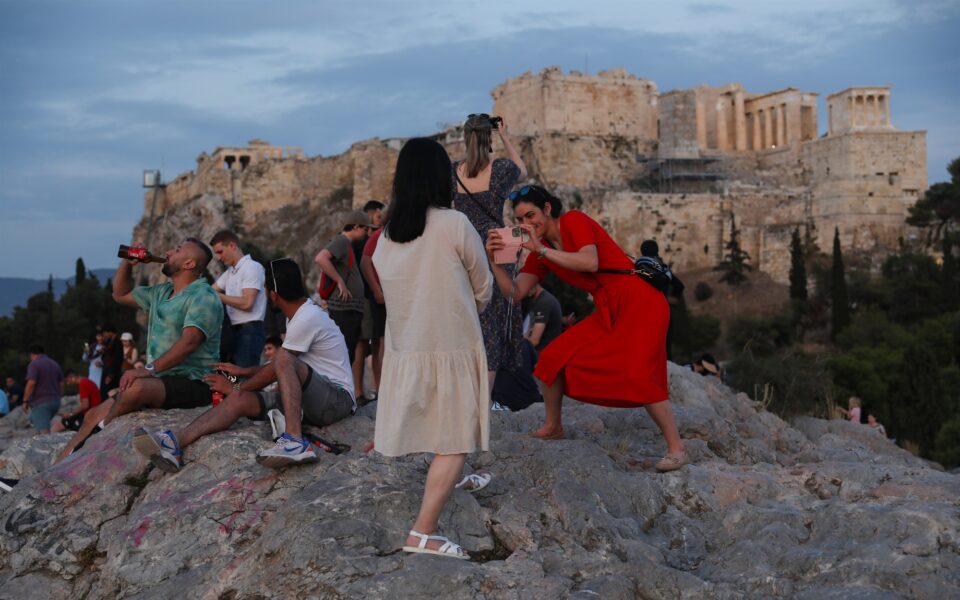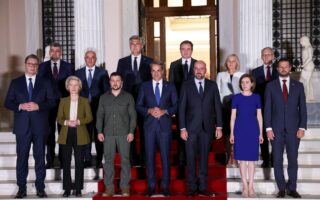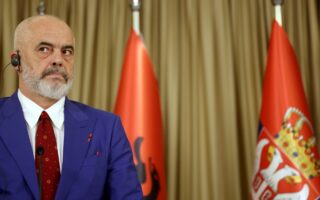For a geoculture of coexistence

Our world is changing rapidly and becoming more unpredictable. This historical evolution is due to at least three factors. First, the post-Cold War order is in retreat, as the West is losing its primacy in the economic, diplomatic and technological fields. Second, the concept of state sovereignty is being tested by the continued emergence of non-state armed actors in the Middle East, sub-Saharan Africa and South Asia. Thirdly, globalization is turning local and regional crises into global ones, with unmanageable consequences.
Due to its geographical location, Greece is at the heart of a geopolitical arc of instability that starts in the Middle East and ends in the Black Sea. The Russo-Ukrainian war continues with unabated intensity, with no prospect of an immediate ceasefire. In the Gaza Strip, Israeli forces are destroying the infrastructure of Hamas and at the same time accelerating the radicalization of young Palestinians. Further south, the Shiite Houthi militia is using the Yemeni coast as a base from which to hit European economies.
Greece has rightly sought to increase its military power and build regional alliances with countries that share the same concerns (like Israel and Egypt, for example). However, this dual strategy has limits. The Greek economy cannot finance large military expenditures indefinitely, while developing a strong domestic defense industry is no easy task. The alignment of our national interests with those of allied countries can never be taken for granted, since everything depends on fluid international politics.
For many reasons, the country is constantly oriented towards the West. However, the new times require greater flexibility and adaptability. Greece is not only a nation-state (Nationalstaat), but also a cultural nation (Kulturnation) with its own values, principles and ideals. Without inward-looking Hellenocentrism, Athens can redefine its relationship with the countries and peoples of the aforementioned arc, starting from the observation that between the Protestant and Catholic West and the Far East there is a common cultural space. This has been described in different ways by the historians Speros Vryonis and Dimitri Kitsikis.
Greece as a nation-state will always have limited possibilities outside its borders, due to the size of its economy and its demographic shrinkage. The country needs to start investing in its intangible power, which is almost unlimited. Until now, our state has been supporting classical studies and Byzantine culture to maintain an influence abroad that is constantly declining. It is reasonable to wonder about the scope of such an approach, which would allow Greece to play a leading role.
What is needed is a radical contemplation of the common cultural space between the West and the East, in 21st century terms
What is needed is a radical contemplation of the common cultural space between the West and the East, in 21st century terms. The common thread between classical ancient Greek, Byzantine and modern Greek culture is the promotion of humanism and ethics. Despite different national interests and aspirations, Greece can promote a geoculture of coexistence and cooperation in the wider region for the benefit of all.
In a few years, the greatest threat to the economy and national security will not come from the revisionism of a great power or the fanaticism of an extremist organization. The consequences of the climate crisis will profoundly change our world at all levels. Rising temperatures are exacerbating the phenomenon of drought and increasing the risk of megafires. The shortage of fresh water is often addressed by the process of desalination, but this negatively affects marine life. Rising water levels threaten the viability of most cities. Floods destroy crops and infrastructure. This is a challenge that no country can adequately address on its own.
Cooperation efforts so far (such as the UN Framework Convention on Climate Change) have often led to confrontations between developed and less developed countries. This is because national interests always take precedence over collective interests.
However, Athens has a special responsibility to encourage a new dialogue for the countries bordering the Mediterranean and adjacent seas. An initiative based on the values of solidarity and justice. To understand each other better in order to jointly address a structural threat, at least in the wider region. Idealistic as it may sound, the only road to collective survival is our return to humanism and morality.
Manos Karagiannis is associate professor in the Department of Balkan, Slavic and Oriental Studies at the University of Macedonia, and Reader in International Security at King’s College London.





